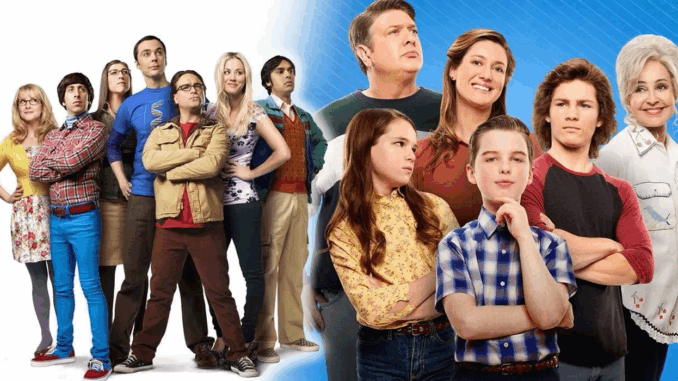
The Surprising Transformation of Young Sheldon
When Young Sheldon first hit our screens, it had big shoes to fill—after all, it was following one of the most successful sitcoms of the 21st century, The Big Bang Theory. But something amazing happened: it quietly evolved into one of the most heartfelt and character-driven comedies on television. Let’s dive into how this prequel didn’t just survive the shadow of its predecessor—it thrived.
1. The Characters Grew Up—Literally and Figuratively
From Stereotypes to Nuanced Individuals
In early seasons, characters leaned heavily on quirks. Sheldon was the genius oddball, Georgie the goof, and Mary the overprotective mom. But as the show matured, so did the characters. We saw real growth—emotional depth, complexity, and even vulnerability.
2. More Heart, Less Formula
Real Stories > Sitcom Gimmicks
As the seasons progressed, Young Sheldon moved away from punchline-heavy writing and leaned into emotional storytelling. Episodes explored grief, family tension, and growing pains without sugarcoating the tough stuff. It became less about the jokes and more about the journey.
3. Georgie Became a Standout Star
From Comic Relief to Fan Favorite
Initially portrayed as the dim-witted older brother, Georgie evolved into one of the show’s most grounded and lovable characters. His storyline with Mandy and eventual fatherhood added real stakes to his arc—and let’s be honest, who didn’t root for him?
4. Sheldon’s Vulnerability Took Center Stage
The Boy Behind the Brain
Instead of just showcasing his genius, the show allowed us to see Sheldon’s struggles: feeling isolated, misunderstood, and even scared. These moments peeled back layers, reminding us that even geniuses need love and support.
5. The Family Dynamics Hit Deeper
A Realistic (and Sometimes Messy) Portrait of Family
The Coopers weren’t perfect—and that’s what made them relatable. The tension between George Sr. and Mary, Missy’s growing pains, and Meemaw’s unpredictable nature gave the show layers. Their flaws made them human.
6. Missy Got the Screen Time She Deserved
Smart, Sassy, and Seriously Underrated
Missy went from being the background twin to one of the show’s most compelling voices. She wasn’t just Sheldon’s “normal” sibling—she was observant, empathetic, and fiercely loyal. And let’s face it—she often said what we were all thinking.
7. It Handled Grief and Loss With Unexpected Grace
George Sr.’s Fate Wasn’t Just a Plot Device
Fans of The Big Bang Theory knew that Sheldon’s dad would eventually pass away. But when the moment came, it was handled with a rawness and honesty that caught many off guard. The writers didn’t rush it or dramatize it unnecessarily—they let it breathe.
8. The Humor Became Smarter (and Funnier)
Less Laugh Track, More Laughs That Landed
Early episodes relied heavily on typical sitcom beats, but the humor evolved. It got clever, character-based, and even subtly satirical. You laughed with the characters, not just at them.
9. The Big Bang Theory Tie-Ins Got More Emotional
Not Just Easter Eggs—Genuine Connections
Instead of just dropping familiar references, the show began weaving in heartfelt callbacks. When adult Sheldon narrated emotional moments—like Georgie’s wedding or Sheldon’s Nobel aspirations—they resonated more deeply with longtime fans.
10. It Found Its Own Identity
No Longer Just a Prequel
At first, Young Sheldon felt like it was coasting on Big Bang fame. But over time, it became its own thing: a coming-of-age dramedy that happened to feature a future theoretical physicist. By the end, it had earned respect in its own right.
The Impact of a Thoughtful Evolution
What started as a cute spinoff turned into one of the most unexpectedly touching shows on TV. Young Sheldon proved that growth isn’t just for characters—it’s for shows too. It gave depth to a beloved character while shining a light on the people who shaped him.
The show’s legacy? It isn’t just about nerdy facts or science jokes. It’s about family, resilience, and how even the most brilliant minds need connection.
Conclusion: A Show That Grew With Its Audience
Young Sheldon did more than just improve—it matured. It took risks, deepened its characters, and found its own rhythm. For a show that started under the massive shadow of The Big Bang Theory, it carved out a legacy of its own. And that’s no small feat.
FAQs
1. Is Young Sheldon better than The Big Bang Theory?
It depends on what you’re looking for. While Big Bang focused more on humor and adult friendships, Young Sheldonleaned into emotional storytelling and family dynamics.
2. How many seasons does Young Sheldon have?
The show concluded with seven seasons, all now available for streaming.
3. Did George Sr. die in Young Sheldon?
Yes, his death was addressed with care in the final season, honoring the character’s journey and its emotional impact.
4. Will there be a sequel or spinoff to Young Sheldon?
Yes! CBS is working on a sequel titled Georgie and Mandy’s First Marriage, set to explore their life after the events of Young Sheldon.
5. Where can I watch all the seasons?
All seven seasons of Young Sheldon are available to stream on Netflix and Paramount+.